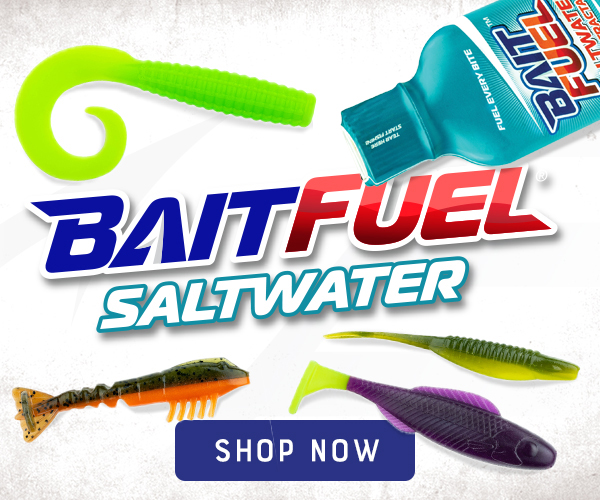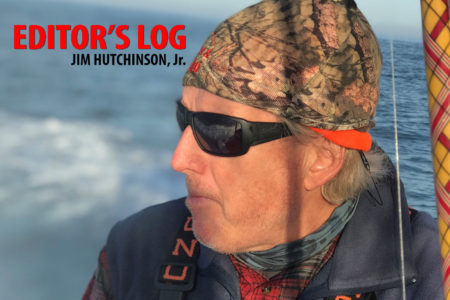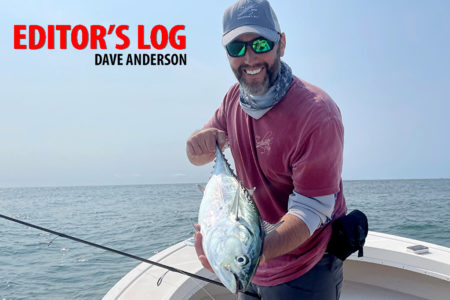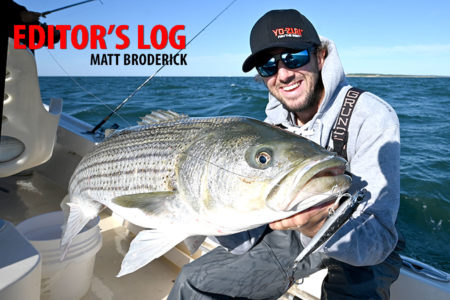“While industry organizations are important stakeholders in their own right, they cannot fully address the need for engagement and representation of recreational anglers into the fisheries management process.”
That statement was delivered to Congress last summer by the National Academies of Science (Academy). In their 2021 report titled Data and Management Strategies for Recreational Fisheries with Annual Catch Limits, the independent, peer-review scientists at the Academy pointed out a troubling disconnect between the national fishing industry and some of their customers (i.e., the saltwater angler).
First, as I’ve noted in previous editorials the much-heralded Modernizing Recreational Fisheries Management Act of 2018 (MFA) didn’t really address the main issues affecting sustainable access to fluke and sea bass (or red snapper for that matter), that being rigid annual catch limits, accountability measures, and an overall lack of management flexibility. Fixing that problem – as I’ve also discussed in 15 years’ worth of editorials – would require legislative changes to the Magnuson Stevens Act (MSA), our nation’s primary fisheries law.
What the Academy found was that MFA didn’t alter the inflexibility of MSA, but instead simply added a new paragraph to existing law to allow “extraction rates, fishing mortality targets, harvest control rules, or traditional or cultural practices of native communities” when managing recreational fisheries. But, as the Academy also acknowledged, these specific management tools “are among the methods currently used by the Councils in managing fisheries,” meaning the ability was already there (the basis of the Recreational Reform Initiative now being advocated through the Mid-Atlantic Fishery Management Council – see News Briefs for more).
So if these academics found that language in MFA already exists in MSA, what exactly did the new law do? For starters it required this study, which in my opinion has brought to light a common misconception that commercial fishing and recreational fishing are two totally different activities. Granted, commercial folks catch and sell their catch while we anglers do not; other than that, Academy scientists said we’re really not that different. Where some may argue that recreational fishermen are not at all like our commercial counterparts, Academy scientists say that’s only accurate with the catch and release segment of our community, “those fishing for largemouth bass in freshwaters, snook and certain other coastal species, or billfishes offshore, may derive satisfaction from good opportunities to catch large fish of their target species.”
On the other hand, the Academy noted “anglers with a consumptive orientation derive a large part of their satisfaction from being able to take a nice fish home to eat, and may be dissatisfied when regulations require them to release all fish caught.” According to the report, consumptive-oriented anglers “are not as fundamentally different from commercial fisheries in their management objectives as are the catch-and-release–oriented recreational fisheries mentioned previously.”
By ignoring the “consumptive” segment of our angling community – those who expect reasonable access to sustainable fisheries, and a fresh fish dinner – many of our saltwater angling interests have been marginalized. As a writer who carefully tries to take into account both angling segments – catch-and-release and consumptive – it’s clear to me that many recreational fishermen are “dissatisfied” because they’re feeling excluded from the national conversation. And that, as the Academy noted, may be a prime reason for lack of angler engagement at the management level; after 15 years of calling for change, fluke and sea bass fishermen are simply tired of the broken promises and a flawed system.
Sea bass and striped bass are managed differently, each by a different set of rules and regulations. But you can expect that anglers with “consumptive orientation” and those in the “catch-and-release–oriented” segment will be fighting bitterly once again this month over these fisheries. And without sensible, inclusive leadership to bring the two sides together, the concept of engagement and representation will continue to fall out of reach of America’s saltwater angler.




